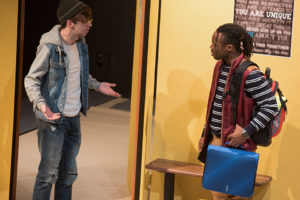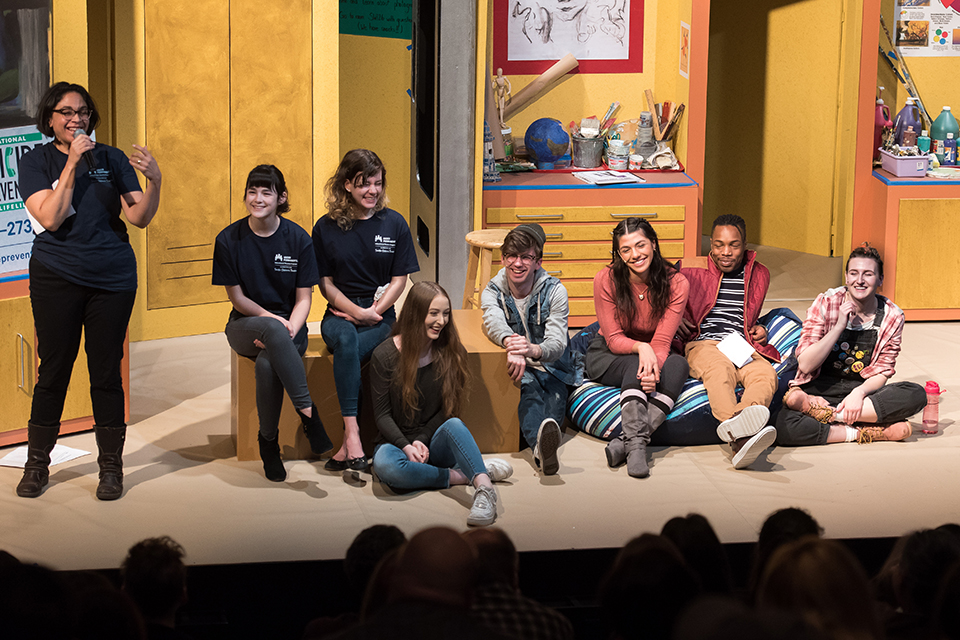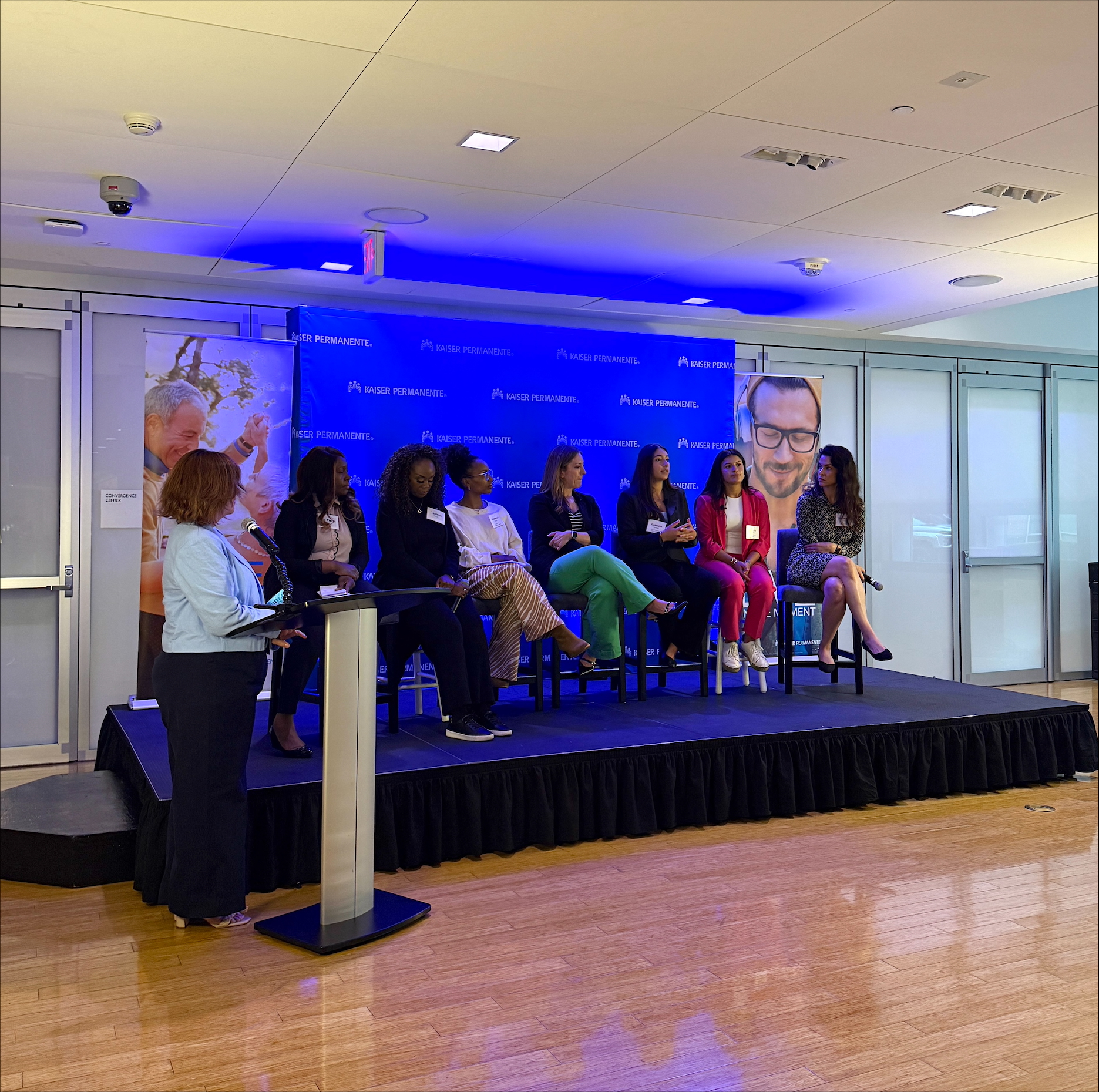In observance of National Health Education Week, Oct. 21-25, 2019, Kaiser Permanente Educational Theatre will be performing its latest mental health program, Ghosted, in four locations across the United States on October 24, 2019: Spokane, WA; Sandy, OR; Oakland, CA; Greeley, CO. For additional information on the Ghosted program and to find other performances happening in your area, read on and visit the link at bottom to find your region’s Educational Theatre contacts.
New educational theatre production helps bring the mental health challenges that many young people deal with out into the open.
 Ghosted. It’s a term used when a person, suddenly and without notice, cuts off communication with another. As in, “I thought things were really good between us, but lately he hasn’t responded to any of my texts or calls. I feel like I’ve been ghosted.”
Ghosted. It’s a term used when a person, suddenly and without notice, cuts off communication with another. As in, “I thought things were really good between us, but lately he hasn’t responded to any of my texts or calls. I feel like I’ve been ghosted.”
To be ghosted is to feel rejected, ignored, alone, cut off from the outside. But the producers and actors in the Seattle Children’s Theatre production of Ghosted are hoping their audiences come away with exactly the opposite experience.
Developed by Seattle Children’s Theatre, in collaboration and consultation with SCT’s Teen Advisory Panel and Kaiser Permanente, Ghosted is a one-hour assembly presented to high-school audiences that follows the journey of four young people, each dealing with their own mental health challenges.
The program uses a professional stage play and follow-up discussion as a way of engaging students around issues of anxiety and depression while teaching them coping skills that can strengthen their resiliency. Throughout the play, the characters find ways to open up and connect with one another while also leaning on the support of trusted adults in their midst.
 In Ghosted, we meet Syd, a young woman who is clinically diagnosed with anxiety and learning to cope with her emotions while spreading what she’s learning to the others. Another student, Andre, is dealing with depression. Liam is having difficulty managing anger and is in trouble for vandalizing school property. And Kayla, a fourth character, finds herself dealing with secondary stress while trying to care for the others around her.
In Ghosted, we meet Syd, a young woman who is clinically diagnosed with anxiety and learning to cope with her emotions while spreading what she’s learning to the others. Another student, Andre, is dealing with depression. Liam is having difficulty managing anger and is in trouble for vandalizing school property. And Kayla, a fourth character, finds herself dealing with secondary stress while trying to care for the others around her.
“It’s been great to hear students talking about the impact that the show has had on them and how relatable it was,” says Jared Randolph, program coordinator for Educational Theatre at Kaiser Permanente. He notes the power of live performance to break the ice and get people talking about an issue.
“One of the great things about educational theatre is that students often say, ‘We’ve heard all this stuff before, but seeing it live and acted out in front of us is completely different and makes the experience real.’”
Ghosted premiered earlier this year at SCT as part of a free community day and has since featured more than two dozen performances at 20 schools in 12 school districts across Washington state. The program is part of an extensive effort by Kaiser Permanente to address the prevalence of mental health stigma and bring the social and emotional challenges that many young people experience out into the open through arts-based education.
 According to the National Institute of Mental Health:
According to the National Institute of Mental Health:
- 20% of youth ages 13-18 live with a mental health condition. Anxiety is the most common, affecting nearly one-third of adolescents and adults and appears to be on the rise along with depression.
- 37% of students with a mental health condition age 14 and older drop out of school — the highest rate of any disability group.
- 50% of all lifetime cases of mental illness begin by age 14 and 75% by age 24.
By fall of this year, Kaiser Permanente plans to begin rolling out the performance of Ghosted to other regions across the country. The roll-out is part of an expansion of Thriving Schools offerings known as Resilience in School Environments, or RISE, aimed at strengthening social and emotional wellness in schools.
For more information or to learn how your school can host a performance, visit Kaiser Permanente’s community health web pages.




